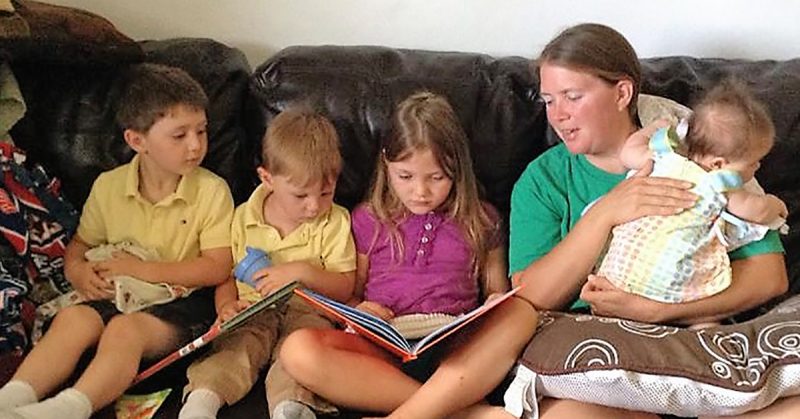I first attended a parenting class when my oldest child was three. My husband was preparing for a deployment and I was pregnant with our third baby. Our three-year-old already had trouble accepting a new baby during the previous deployment, when she was a toddler. She would act out and throw tantrums, often lashing out at her brother. For the safety of her younger siblings, we knew we had to do something to address her emotional outbursts. Verbal reprimands, time-out chairs and taking away toys didn’t work. I was desperate and not sure how to handle three young children on my own during deployment, so when we heard that the military base was hosting a free parenting class, we signed up.
We slowly tried out the ideas from the class and discovered that switching to a more positive “authoritative” parenting style made a huge difference. Our daughter responded well to positive reinforcement! We had household rules, and she initiated positive behavior more to earn sticker rewards. During deployment, my husband could remain involved by sending her art supplies when she went a week without hitting anyone. It wasn’t an easy time for me, but these parenting resources were a huge help when I desperately needed somewhere to turn.
Over the years, I have continued to brush up on parenting classes and resources. As our children grow up, they are constantly entering new developmental stages and presenting us with new challenges. Parenting is a constant adjustment that lasts your whole life! That’s why I was excited to learn about the Department of Defense’s new parenting resource called THRIVE.
What is THRIVE?
THRIVE is a parenting program for parents with children from birth to 18 years old. It’s divided into age categories called Take Root! (0-3 years), Sprout! (3-5 years) Grow! (5-10 years), and Branch Out! (10- 18 years old). Parents can access this program for free to get guidance on dealing with common parenting struggles.
The program is a collaboration between the DoD and the Clearinghouse for Military Family Readiness from Pennsylvania State University, and falls under the resource center, developed by professionals who work with military families. It’s a series of online, research-informed programs, which military families can use any time at no cost after signing up. THRIVE uses a strengths-based approach to increase family readiness. The online tools focus on improving a parent’s potential to promote positive development in several areas including physical, emotional, intellectual and social.
At every level of the THRIVE program, parents will find online presentations, videos, questions and interactive scenarios to help them with general parenting strategies and developmental concerns. THRIVE focuses on practices like positive reinforcement, communication, and listening. It helps both parents and children learn to regulate their stress by presenting expectations, managing emotions, and accessing resources. It also includes discussions about physical health such as eating practices, family meals and exposure to new foods.
Why I Love THRIVE:
1.) It’s a resource available from the comfort of home, whenever you need it. Each program age level includes several sessions which can be completed online at your own pace. The sessions take an estimated 20-30 minutes to complete.
2.) It’s tailored to several age ranges. For infants, the topics focus on evaluating your own health and your child’s milestones. For elementary age children, there are more sessions. They discuss topics like parenting styles, using praise and encouragement, daily routines, promoting health, preventing misbehavior, managing misbehavior, listening and communicating.
3.) It’s interactive. Parent toolkits placed throughout the course allow you to delve deeper into questions with workbook-style pages or checklists to complete. There are practical application exercises to help you decide how to respond to different situations. The various media tools keep the information interesting and interactive, so you aren’t just flipping through slides.
4.) It’s available to the public but also applicable to military families. It’s aware of the unique stresses and challenges of military life and addresses those issues. For example, stranger anxiety and separation anxiety are issues that military spouses often face when raising babies alone during deployment. There is a session in Take Root! discussing useful strategies for that specific situation. Similarly, I found sessions in the elementary school age (Grow!) that would help during PCS moves and adjusting to life changes.
Parenting isn’t easy, and neither is military life. If you are looking for extra parenting support during this season, I encourage you to check out the THRIVE program from the DoD. You can sign up for free here, then go through the online sessions whenever it is convenient for you. Don’t struggle through the frustrations of parenting alone when you have resources available to help you!





